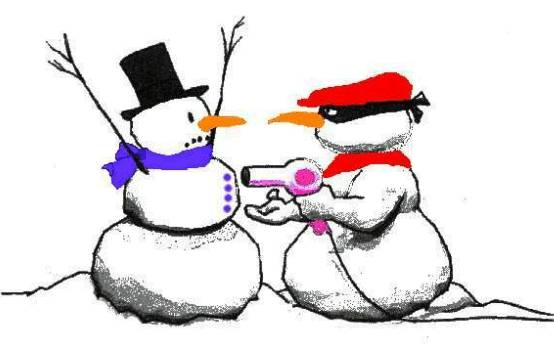AND

COME IN ! I'LL PUT YOU THROUGH TO ENGLISH. I hope you find this blog useful and worth it - to improve your English while you have a bit of FUN!



 Let's improve our writing skills and have fun at the same time
Let's improve our writing skills and have fun at the same time
Exercise 1 & 2 (think about your answer first, and then click on the box to check if you are right. Don't look at the answer before thinking, ok?)
Exercise 3 (choose one preposition among the 6 possible ones)
Exercise 4 (write the correct preposition in each gap)
Exercise 5 (choose one preposition among the 3 ones shown)
For a very complete list of adjectives + preposition, don't miss the following webpage. Click on here

 Let's practise the word formation in English
Let's practise the word formation in English

 HOW HEALTHY ARE YOU?
HOW HEALTHY ARE YOU?Here you have some good video lessons about the conditionals (type 0 & 2) which I highly recommend you to watch and listen to.
Zero Conditional (lesson 1)Joke num.3

.jpg) Funny ha-ha or funny peculiar?
Funny ha-ha or funny peculiar? Let's learn some new vocabulary
Let's learn some new vocabularyIT'S HALLOWEEN!!!!
Halloween is a special night for everybody! Here you have some vocabulary that you can use to talk about this scary holiday.
1.Halloween (N) a holiday celebrated on October 31 in which people dress in scary costumes
2. to carve (V). to cut with a large knife
3. pumpkin (N). a large, orange vegetable associated with Halloween
4. jack-o-lantern N. Americans traditionally cut out scary faces in pumpkins and put a candle inside. These pumpkins with faces are called "jack-o-lanterns." Jack-o-lanterns are made to scare away evil spirits on Halloween.
The word "Halloween" is a shortened form of "All Hallows' Eve", meaning the evening before "All Hallows' Day" or "All Saints' Day", which is November 1st.
In the past, poor people went around asking for food in exchange of a prayer for the dead. Nowadays, this tradition was changed. In Ireland and the United States, children dress up and go door-to-door collecting candy. This is called "trick or treat", meaning that if they don't receive candy they will make a trick or a spell.
The carved pumpkin has become the symbol of Halloween. It's called "Jack-o-lantern", from an Irish legend about a man called Jack. He was a lazy farmer, who tricked the devil and refused to free him unless he agreed to never let Jack go into hell. So, Jack started to wander the Earth looking for a resting place, carrying a carved turnip with a candle inside.
*definition of couch potato: someone who spends most of their time watching television, and does not exercise or have any interesting hobby.
If you watch this video, you will listen to a very clear explanation of what a cough potato is. Later you can play the game that is below the video as a kind of listening comprehension exercise.
Let's practise the listening now.
Listen to an expert explaining what a drama is. Below I have included a link where you can read the text.
What is a TV 'drama'?
Another video where you are told about the different kinds of dramas. For the text, see the link below.
What are the various types of dramas?
This is the last video about dramas. Here the expert talks about how long a drama episode lasts. See the text below
How long is a TV drama episode?
Although it is considered an hour-long, a TV drama doesn't really run an hour. We've had a lot of change in that, so the answer I would have given you a little while ago is roughly 52 minutes or a 58 page script. This is no longer usual on TV networks which are now having more commercial interruptions than ever and breaking their shows into more act breaks. We now, I am sorry to say, have shows that are running for as little as 44 minutes of actual dramatic material out of a sixty minute hour.
_______________________________________________________________
*ANSWERS (Tv vocabulary text)
1.media 2. subjective 3.soap operas 4. couch potato 5.channel 6.network 7.cable
8. programs 9. documentaries 10.quizshows 11. series 12.commercial 13. watch 14.viewers
___________________________________________________________
Let's go on practising the listening.
For an extra listening about TV (How good or bad TV is?) with multiple choice questions, click on the following link listening comprehension exercise Once you are in, click on each person to listen to their opinions about tv. You will find comprehension questions at the end of each listening.
Test yourself about your addiction to TV now.
Click on the following link: online survey, and you will find a questionnaire about this topic. Take the test and later check your score on the same page
Did you learn something new about YOU or the TV? Would you like to share it with your classmates?
Someone would like to give you an advice. Try to follow it if you want to succeed in speaking better English
Did you enjoy the lessons? Do you think this is an interesting way to learn the pronunciation of the English language?
___________________________________________________
Here you have two exercises to practise the use of the connectors
Exercise 1: in this one, you will have to combine two sentences to make one through connectors
Exercise 2 : this is a multiple choice exercise where you will have to choose the connector that fits best in each sentence
_____________________________________________________________________________